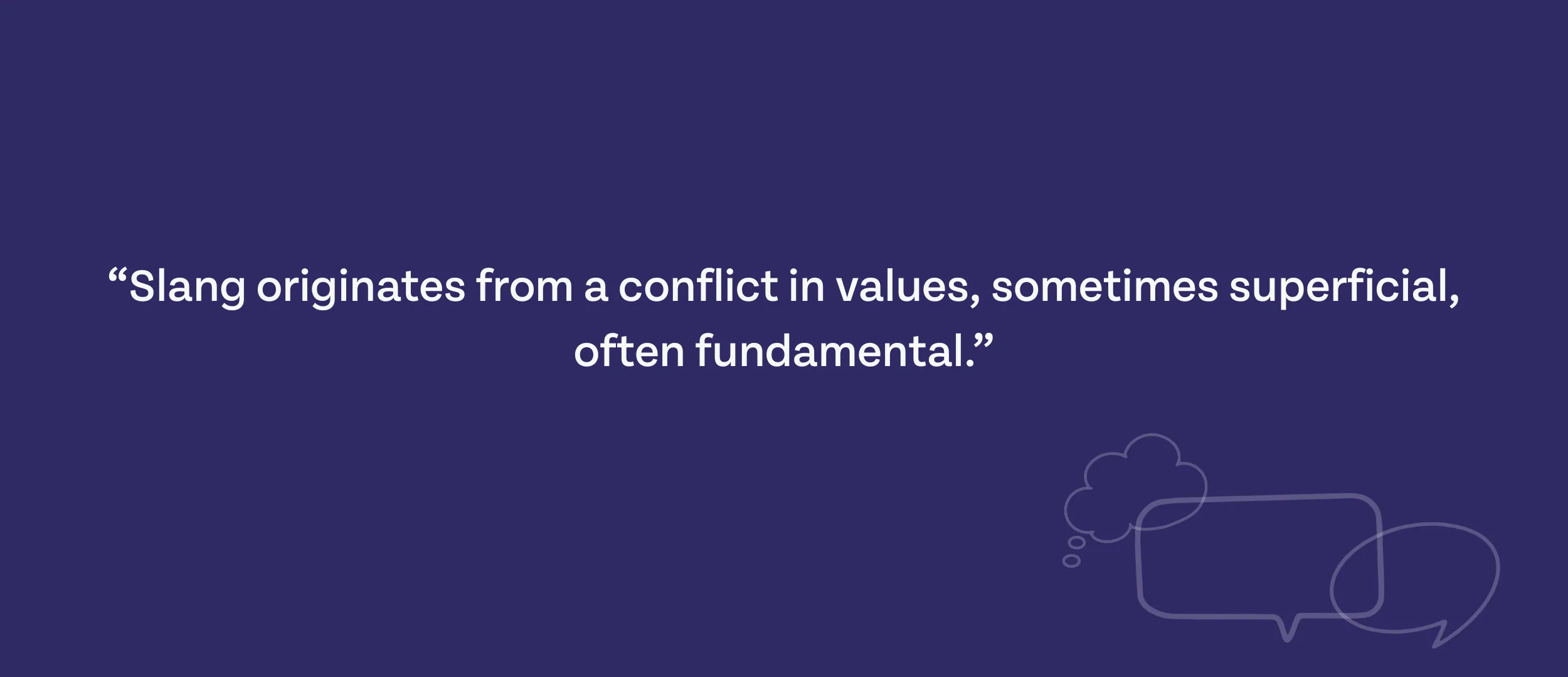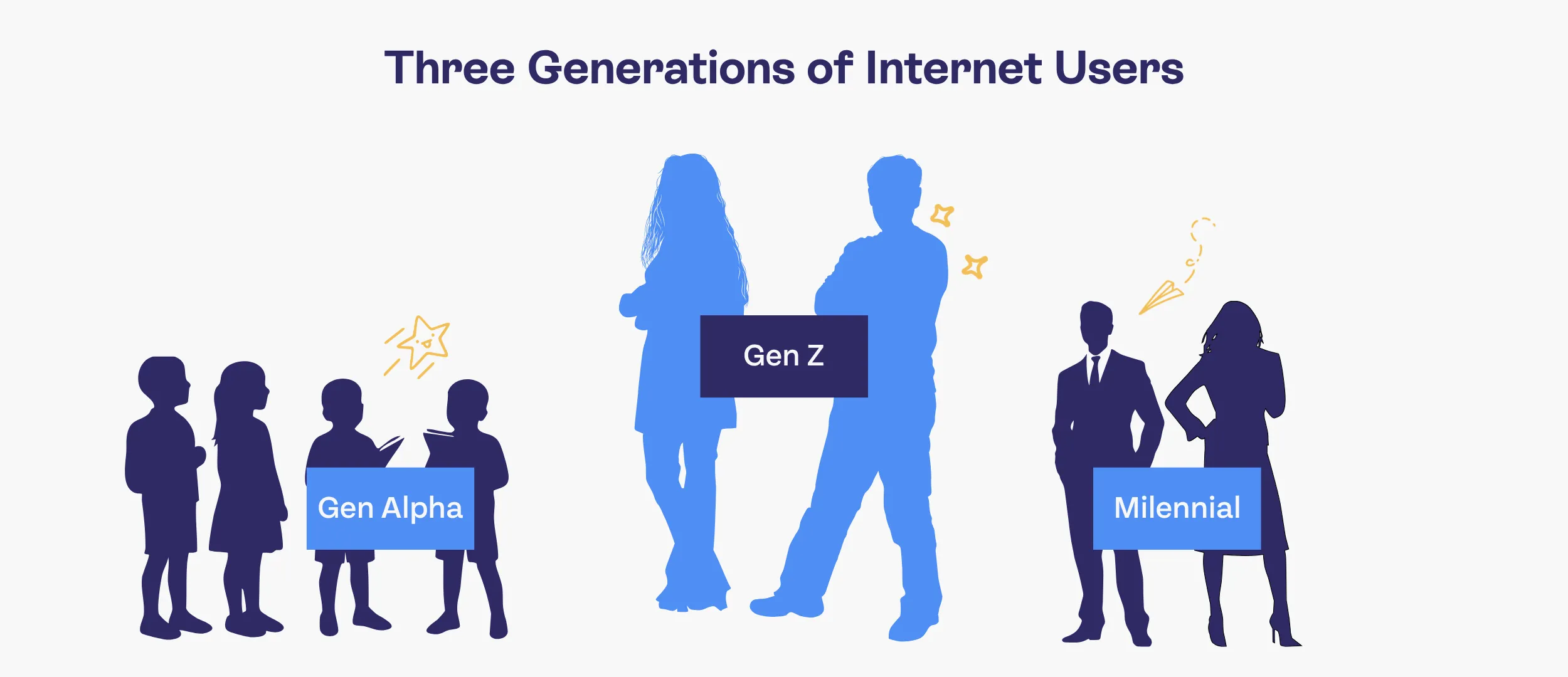I was a young teacher. In fact, I was confused for a wandering student on several occasions in my high school. So, it’s even more embarrassing that I couldn’t keep up with my students’ slang despite being only about 10 years older than them. There were times when the key words in a sentence were so foreign to me that I didn’t know whether to be offended, flattered, or concerned!
As a lover of language, I’ve always been intrigued by slang, especially now that TikTok and YouTube have helped to rapidly create new words, change their meanings, and spread their usage. But is slang all that different now than it’s ever been?
Research shows that, while slang is evolving more rapidly than ever, the process is similar to what youth and subcultures have experienced for hundreds of years. Plus, when our students use slang frequently in the classroom, they’re communicating something important about themselves and their surroundings.
How slang develops and spreads

Did you know that William Shakespeare is, to this day, one of the most prolific creators of slang words in the English language? Many of his contributions have stuck around, such as the phrase, “beat it.” However, many more words and phrases have gone by the wayside because, as our next source describes, it lost its sensationalism, and the “spark” of incongruity that made it sticky to Shakespeare’s generation.
According to Brittanica, slang isn’t just a new word–rather, it’s a type of word directed at social commentary. The word “slang” originated in the 1800s to describe the speech of the criminal underclass of London. These words are often targeted at “respectability,” and can be used to find community in small subcultures.

If these words don’t resonate, they don’t spread. The article describes a phenomena in which there is a certain “pressure” that cooks these slang terms and helps them mature, often slipping into the mainstream. Whether the social pressure is internal (from within a group or subculture) or external (in critique of another group), slang words develop as a response.
One example includes the word “scab” which was created during the development of labor unions in the United States. This word was created out of both an internal and external pressure. Externally, there was conflict between the working class and the managing class; however, this particular word is aimed within the working class group to describe those who cross the strike line and betray their own.
Another interesting aspect of slang is that it develops from a deep understanding of language, a kind of metaphor, that draws attention to the incongruity of the word to its target. Sometimes, even the sound of the word plays an important role in how “sticky” it is to its users.
As a fun example, the British term for police officers is “Bobbies” after the reformer Sir Robert Peel (Bob) who helped to create a number of changes in the English police force that would distinguish them from Military members, the “red coats.”
In this way, the term Bobbies developed from an external pressure, critiquing the excessively forceful military presence of the red coats. The Bobbies would become a contrasting presence to the military, one that didn’t even carry guns. Bobbies even sounds more approachable, doesn’t it? In fact, the term is still thought of as affectionate in most groups.
Is slang always malicious?
One of my toughest students was a very outspoken, gifted student who had a clear distaste for authority. Building a relationship with this student was confusing. I remember one time when I was chatting with her and her tablemates, in response to something I said, she called me a name which, by the sound of the syllables alone, instantly hurt my feelings.
Because I’d never heard the word before, I withheld my reaction.
It was weeks before I heard the student use the word again, and I asked her what it meant. She smiled and said, “It means you’re tough.” (Though she didn’t use those words. Isn’t it hard to talk about slang without using cuss words?)
Turns out, she’d been complimenting me.
Skibidee Toilet and 67
I’m sure you’ve seen the videos of teachers who are reacting, often in real-time, to students using terms that they don’t understand.
I think a common and understandable instinct is to react to slang as if it’s directed against you, the person in authority. Per the nature of slang, these words do often develop to criticize people in roles of respect.
An interesting trend, particularly in the Gen Alpha group, is that some slang is purely nonsensical.
Skibidee toilet came from a YouTube video series of the same name in which toilets have talking heads and people have cameras for heads, and these two groups are in all out war. Students often use the words “skibidee toilet” purely for the sound–assigning it no meaning in the larger context.
“Six-Seven” or “67” is a deliberately nonsensical word that refuses to take on meaning. It originally came from a song by Skrilla.
So, can these words even count as slang if they don’t have meaning?
Let’s discuss!
The external pressure of generational difference

Gen Z is an interesting case study of a generation that is sandwiched by two different generations who spent varying amounts of time on the internet in its own vastly different stages of development.
Gen Z is often hypercritical of Milenials who they perceive to be “cringey” at best and immature at worst. The word “cringe” itself came about as people viewed (externally) the way that others were living their lives as antithetical to their own values, an important process in the formation of slang.
While it used to be used somewhat affectionately, it has developed into a disdainful condemnation of other people’s behavior.
Now, Gen Z coined the term “brain rot” to describe Gen Alpha’s use of slang and language, often pointing at their inability to use a slang term correctly or to assign it any meaning, largely because of their excessive time spent on the internet.
The internet is the progenitor of a lot of slang, and is perceived by academics as the source of a great amount of linguistic churn.
Because of this and many other factors surrounding internet literacy, slang is being developed at an extremely high rate by Gen Alpha, and much of it is perceived to be nonsensical by other generations. To Gen Alpha, however, these nonsense words connect them with the only other people in the world who can understand what it’s like to be them.
While some of these words don’t have inherent meaning, they do point to a generational gap that often pits them as the target of derision and separation from Gen Z, their parents, and older generations.
Gen Alpha is a very large subculture with a shared experience of being raised on the internet in a way that no one else can understand. Developing slang that points externally to other groups, a jousting shield of sorts, separates them further from people who often vilify them for their internet usage. Seems appropriate to the definition of slang we’ve so far discussed.
So, why does any of this matter?
As teachers, we’re in the business of relationship building.
According to this chart, nearly 10 percent of teachers today are 60 or older; 20 percent are in the 50s; 26 percent in their 40s; 25 percent in the 30s; and a little over 18 percent are in their 20s.
When I was a teacher in my 20s, I felt that instinct that teachers often feel to latch onto slang as inherently harmful, perhaps even assuming it was aimed at me or others in the room.
I can’t imagine how alienated older generations of teachers must feel from their students, being sometimes 50 years removed from them and trying to communicate with a generation that uses largely internet generated language that is inherently nonsensical.
However, when we know that slang is often affectionate (while still critical), and we know why it develops, it provides an incredible amount of insight about its user, their subgroup, and the needs of their culture that spawned the slang that they use.
The language we use is the foundation of our relationships with students. How we speak to them (just like how they speak to us) can influence the feeling of belonging that either party has in that relationship.
When we know why students use slang in the classroom, whether it’s to communicate a niche idea that aligns with their values and experiences, or to feel connected to a like-minded group of people, we can look at slang as a valuable tool for our students and an interesting piece of data that provides insight into their beliefs.
How can slang help you connect with your students?

We’ve talked before about how it’s okay for your students to laugh at you. If you want to be very brave, perhaps you can learn and use the same slang that your students are using, but we make no promises as to how effective that will be in making you seem cooler.
Maybe you don’t use it, but here are some things that slang in the classroom can help you do:
- Understand power dynamics and how the student feels about certain relationships
- Identify landmark media that the student and their generation are experiencing together
- Use trends and media to connect with students (whether they laugh at you or not)
- Analyze the values and beliefs of that student’s subculture
- Be cognizant of the ways in which they perceive themselves to be an outsider
- Not react to harmless language in a way that further isolates you from your students
Want to join the discussion?
We’d love to hear from you, especially when it comes to the unique needs of a teacher today. One of the best ways to keep in touch with us is by subscribing to our newsletter. When we talk about topics that interest you, you can simply respond to our emails and let us know what you think. We couldn’t do what we do without the input, the brilliance, and the expertise of teachers.


.webp)


.png)

.png)